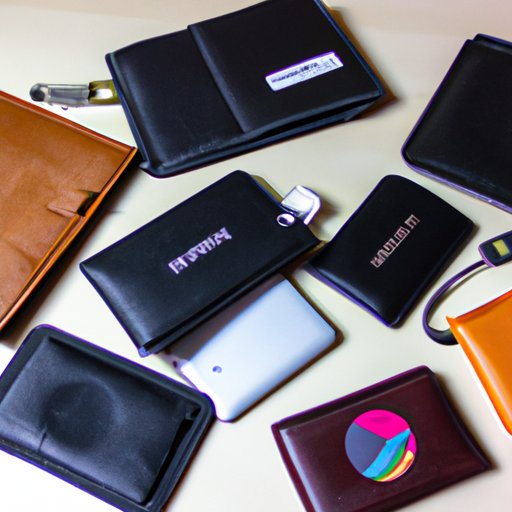Introduction
Cryptocurrency is a digital asset that uses cryptography for secure transactions and is stored on a blockchain. It has gained popularity due to its decentralized nature, low transaction fees, and fast transaction times. To store and use cryptocurrency, you need to have a crypto wallet. A crypto wallet is a software program that allows you to store, send, and receive cryptocurrency.

Overview of Different Types of Crypto Wallets
There are several types of crypto wallets available, each with their own advantages and disadvantages. The main types of wallets are desktop, mobile, web, hardware, and paper wallets.
Desktop wallets are installed on a computer and offer users full control over their private keys. They are considered one of the most secure types of wallets but require a certain level of technical knowledge to set up and manage.
Mobile wallets are apps that can be downloaded onto a smartphone or tablet. They are convenient as they are easily accessible, but also have some security risks associated with them.
Web wallets are hosted online, meaning users do not need to download any software. They are easy to use but lack the security features of other types of wallets.
Hardware wallets are physical devices that can be used to store cryptocurrency offline. They offer high levels of security but are more expensive than other types of wallets.
Paper wallets are pieces of paper with a public and private key printed on them. They are considered one of the most secure methods of storing cryptocurrency but are not practical for everyday use.
Setting Up a Crypto Wallet
The first step in setting up a crypto wallet is to choose a wallet type. As mentioned above, there are several different types of wallets available, so it is important to research each type before deciding which one to use. Once you have chosen a wallet type, you will need to create an account. This process will vary depending on the type of wallet you are using, but generally involves providing personal information such as your name, email address, and phone number.
Once you have created an account, you will need to set up two-factor authentication (2FA). 2FA adds an extra layer of security by requiring users to enter a code sent to their phone or email address every time they log in. This helps to protect your account from unauthorized access. You should also enable other security measures such as password protection, encryption, and backup options.
Funding a Crypto Wallet
Once you have set up your crypto wallet, you will need to fund it. This can be done by transferring fiat currency or cryptocurrency from another wallet. When transferring fiat currency, you may need to provide additional information such as bank details or credit card information. When transferring cryptocurrency, you will need to obtain the receiving wallet’s address.
Sending and Receiving Cryptocurrency
Once your wallet is funded, you can start sending and receiving cryptocurrency. To send cryptocurrency, you will need to enter the recipient’s wallet address, the amount you wish to send, and any additional information required by the wallet. To receive cryptocurrency, you will need to provide the sender with your wallet address.

Benefits of Using a Crypto Wallet
Using a crypto wallet offers several benefits over other methods of storing cryptocurrency. Crypto wallets are secure, as they use advanced encryption technology to protect user data. They also offer fast transaction times and low transaction fees. Additionally, many wallets offer additional features such as multi-signature authentication and transaction tracking.
Conclusion
A crypto wallet is a necessary tool for anyone looking to use or store cryptocurrency. There are several types of wallets available, each with their own advantages and disadvantages. Setting up a crypto wallet involves creating an account, setting up 2FA, and funding the wallet. Users can then send and receive cryptocurrency using their wallet. Crypto wallets offer several advantages, including security, fast transaction times, and low transaction fees.
(Note: Is this article not meeting your expectations? Do you have knowledge or insights to share? Unlock new opportunities and expand your reach by joining our authors team. Click Registration to join us and share your expertise with our readers.)
